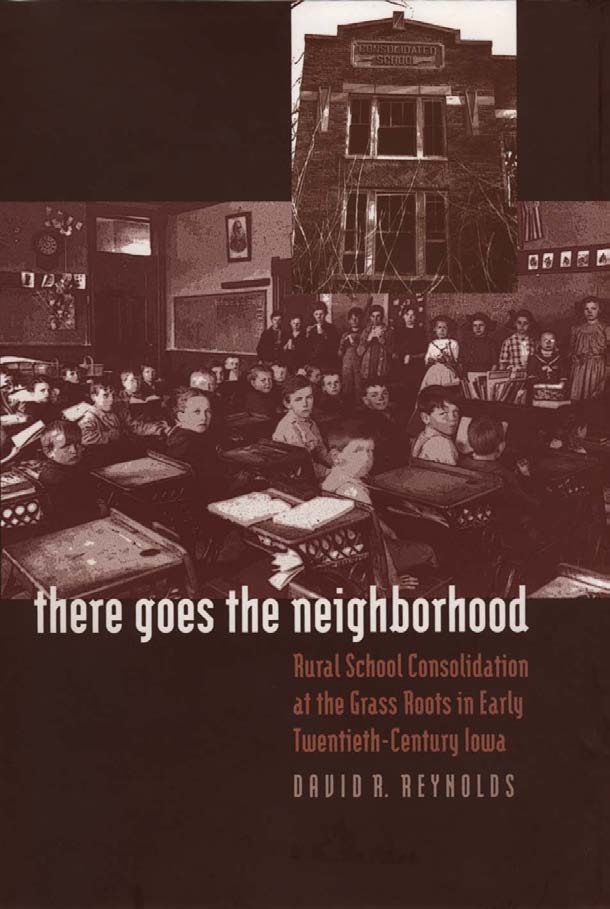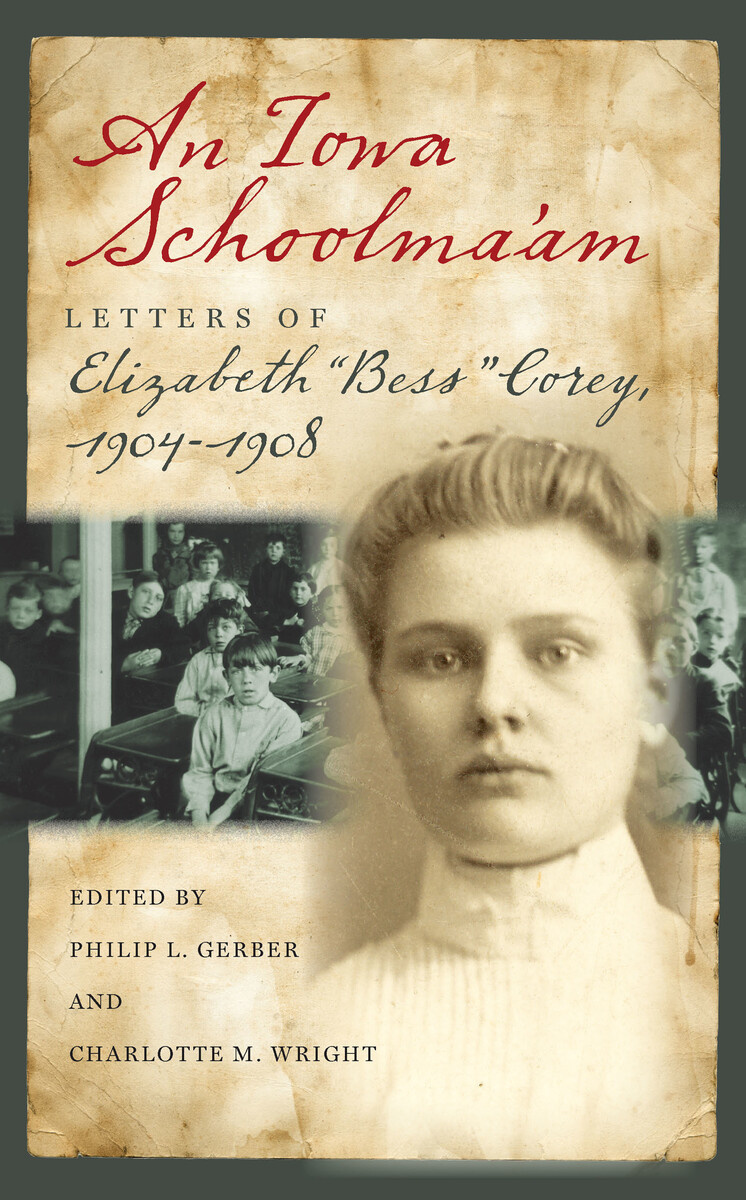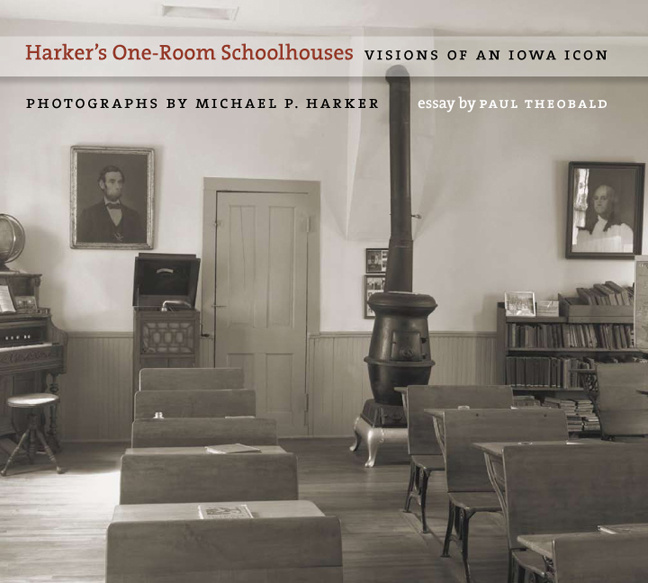Despite being the centerpiece of rural educational reform for most of the twentieth century, rural school consolidation has received remarkably little scholarly attention. The social history and geography of the movement, the widespread resistance it provoked, and the cultural landscapes its proponents sought to transform have remained largely unexplored. Now in There Goes the Neighborhood David Reynolds remedies this situation by examining the rural school consolidation movement in that most midwestern of midwestern states, Iowa.
From 1912 to 1921, Iowa was the center of national attention as state and local education leaders attempted to implement a new model of rural education, intended to be emulated throughout the rest of the Midwest. As part of the Country Life movement—whose leaders sought to create a more modern future for farm families, an alternative form of rural community that combined the advantages of both city and country—the initially successful model collapsed in the early twenties, not to be revived until after World War II. Reynolds focuses on how and why rural school consolidation was so vigorously resisted in most of Iowa, why it failed in the twenties, and what its lasting consequences have been.
Combining social and oral history, modern social theory, historical geography, and ethnography, There Goes the Neighborhood is the most authoritative analysis to date of the politics, geography, and social history of rural school consolidation in any state.
“Anyone who thinks today's furor over school reform is unprecedented has much to learn. This book is an illuminating study of the vicious 'culture wars' attending Iowa's urban-inspired movement for rural school consolidation in the Progressive Era and early twenties—conflicts eventually mobilizing even the Ku Klux Klan. Reynolds manages to say something very basic about social politics and the nature of traditional society in America.”—Robert R. Dykstra, SUNY Albany
“Using place and class as interpretative tools, David R. Reynolds brings new insights into the history of the rural school consolidation movement in Iowa during the progressive period and beyond. Thoroughly researched and well-written, There Goes the Neighborhood raises important questions about the future of rural school consolidation in the new age where space may matter less than it once had.”—Wayne E. Fuller
“This book is excellent. Reynolds provides an interesting, effective, and thoughtful perspective on an important period of American history. The book is very well organized, carefully researched, and well-written. It provides an important interdisciplinary perspective on a variety of important literatures. It should be of interest to scholars from a variety of disciplinary perspectives as well as to lay audiences with interests in rural history and the history of education.”—Fred Shelley
“intriguing, challenging book”—James M. Wallace, History of Education Quarterly
“Reynold's analysis is particularly germane to today's pressing issue of distance learning and the telecommunications technology "digital divide" between rich suburban and poor urban and rural school districts that often dictates how and if they are able to participate in this most recent of educational reforms. 'The rural neighborhood is gone,' Reynolds suggests, 'but the issue of the relationship between the school, place-based communities, and class is as important as ever' (p.248) There Goes the Neighborhood is well written and compelling, drawing upon sources that include public school reports, contemporary social science and education scholarship, legislation and related law cases, census data, local newspapers, institutional correspondence, and original oral history interviews.”—Nebraska History
“This book not only explains an era in educational reform efforts; it also broadens our understanding of the rural midwest and of the relationship among progressive reformers, small towns, and farmers.”—The Journal of Interdisciplinary History
Winner of the Shambaugh Award



